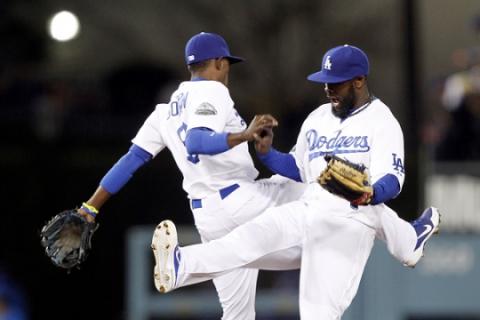What Makes a Team Worth Saving?
TIME IDEAS
April 24, 2012
by Doug Glanville
The recent sale of the L.A. Dodgers shows that history can be more important to a team's legacy than performance.
Sports dynasties are great for telling stories. They take us back to our high school basketball team that was undefeated, or that track star who always won the race. But when it comes to leaving a lasting legacy, being a dominant winner or a consistent champion year in and year out over a significant period of time actually matters much less than we think.
The recent sale of the L.A. Dodgers is an interesting case study in the irrelevance of dynasties. Their last World Series title was 24 years ago, but the fact that the league fought tooth and nail to wrest the team from a wayward owner and insure its future suggests that even a losing team might be worth saving.
In the beginning, the Los Angeles Dodgers represented new frontiers. As a relatively young franchise at the time (moved from Brooklyn in 1957), they thrived over a 16 year stretch from 1970–1985, finishing in first or second place in their division in all but two seasons, including four World Series appearances including the championship in 1981. (They also won the world series in 1959, 1963, and 1965 before that period.) They then hit a long slump, and in a highly leveraged $430 million deal, Boston parking lot guru Frank McCourt became the new owner in 2003. In his first season, the team won the National League West division title after a 10-year drought, but the honeymoon would quickly sour as he began to spend wildly and landed in divorce court. Fans and the league alike invoked the power of the Dodgers’ legacy as the basis of a swift intervention. Commissioner Bud Selig said, “The Dodgers had been one of the most prestigious franchises in all of sports, and we owe it to their legion of loyal fans to ensure that this club is being operated properly now and will be guided appropriately in the future.”
Certainly, the league was motivated to intervene for financial reasons, but the decision was not based on preserving a dynasty but preserving the game’s history. The Dodgers were central in two of the most significant changes in baseball. The first was when Jackie Robinson broke the color line to enter the game as a Brooklyn Dodger. The second marked the league’s expansion to California by moving the team to Los Angeles.
The Dodgers are a relevant bridge between the game and our society. Winning streaks and dynasties sell jerseys, get bragging rights, and maybe even build stadiums, but tomorrow you can lose your shirt and the fickle fan moves on. Making social change holds the world’s attention forever.
Republished from TIME Ideas






